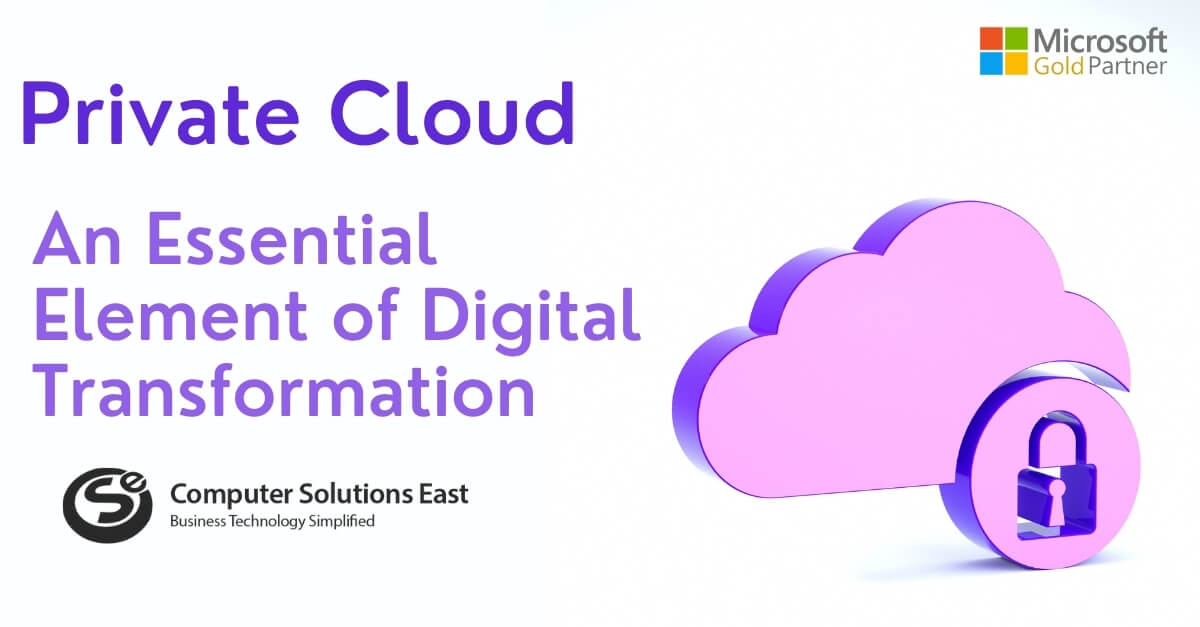Empowering with a Managed Cloud Service Provider: Navigating IT Challenges with Ease
The adoption of cloud technology has revolutionized how businesses operate, offering numerous benefits such as scalability, flexibility, cost savings, and enhanced collaboration. However, harnessing the full potential of the cloud requires specialized knowledge and expertise. This is where a trusted managed cloud service provider (MCSP)comes into play. These professionals bring experience in cloud infrastructure management, security, and optimization, allowing businesses to leverage the cloud effectively while focusing on their core competencies.

A cloud-managed services provider enables businesses to navigate the complexities of cloud technology. From initial setup and configuration to maintenance and support, they offer comprehensive solutions tailored to the unique needs of each business. By leveraging the expertise of these providers, businesses can ensure optimal resource utilization, implement robust security measures, and seamlessly scale their infrastructure as needed.
Furthermore, a managed IT service provider for cloud technologies enables businesses to stay updated with the latest advancements in cloud technology. With rapid innovations and evolving best practices, it can be tedious for organizations to keep up on their own. By partnering with an IT-managed service provider with cloud expertise, businesses gain access to a team of professionals specializing in cloud technologies to ensure they are on top of the curve and capitalize on emerging opportunities.
As businesses increasingly rely on cloud technology to drive growth and innovation, the expertise of MCSPs becomes invaluable. These professionals help businesses overcome the complexities and challenges associated with the cloud, allowing them to harness its potential fully. By working with a MCSP, businesses can optimize their cloud infrastructure, enhance security, and stay agile in an ever-changing digital landscape.
But which challenges does a MCSP primarily address? And what are the limits of its empowerment to modern businesses?
The challenges addressed by a managed cloud service provider
A cloud-managed services provider can help businesses overcome a range of IT challenges. Here are the common challenges that can be addressed by engaging a MCSP:
- IT Infrastructure Management – Setting up and managing the infrastructure for applications and services can be complex and time-consuming. A MCSP can handle tasks such as provisioning, configuring, monitoring, and maintaining the infrastructure, freeing internal IT teams to focus on strategic initiatives.
- Scalability and Performance – Businesses often face challenges in scaling their IT infrastructure to meet increasing demands or sudden spikes in traffic. Managed cloud service providers offer scalable resources and automated scaling capabilities, ensuring businesses have the necessary computing power, storage, and network capacity to support their workloads. This helps maintain optimal performance levels even during periods of high demand.
- Security and Compliance – Ensuring robust security and compliance with industry regulations can be challenging for businesses. MCSPs have expertise in implementing and managing security measures, such as encryption, access controls, intrusion detection systems, and vulnerability scanning. They can also assist with compliance requirements, including data protection regulations like GDPR or HIPAA.
- Data Backup and Disaster Recovery – Protecting data and implementing robust backup and disaster recovery plans are critical for business continuity. MCSPs offer reliable backup solutions and disaster recovery capabilities, including data replication, automated backups, and offsite storage. They can help businesses establish and test disaster recovery strategies, ensuring quick data restoration and minimizing downtime during a disruption.
- Application Deployment and Management – Deploying and managing applications reliably and efficiently can be challenging, especially in complex or distributed environments. MCSPs offer expertise in application deployment, containerization, orchestration, and monitoring. They can help businesses optimize application performance, automate deployment processes, and ensure high availability.
- IT Cost Optimization – Optimizing IT costs while ensuring efficient resource utilization is a common challenge. MCSPs offer cost-effective solutions by leveraging economies of scale and providing flexible pricing models, such as pay-as-you-go or reserved instances. They can help businesses analyze their cloud usage, identify cost-saving opportunities, and optimize resource allocation for better cost efficiency.
- IT Expertise and Support – Many businesses face challenges related to limited IT resources, expertise, and the ability to keep up with rapidly evolving technologies. MCSPs offer access to a team of professionals who are well-versed in cloud technologies. They can provide 24/7 support, handle routine maintenance tasks, offer technical guidance, and assist in troubleshooting issues.
- Vendor Management – Dealing with multiple vendors and ensuring seamless integration between different systems can be complex. MCSPs act as a single point of contact for various cloud services, simplifying vendor management and reducing the complexity of multi-cloud or hybrid cloud environments.
The limitations of a managed cloud service provider 
While MCSPs offer valuable assistance to businesses, there may be scenarios where their services might not be as helpful or suitable. Here are a few situations where a MCSP may not be the best fit:
- Extensive In-House Cloud Expertise – If a business already has a highly skilled and experienced in-house team with deep knowledge of cloud technologies, it may not require the additional support of a MCSP. In such cases, the business can manage its cloud infrastructure and operations independently.
- Minimal Cloud Requirements – For small-scale businesses or those with minimal cloud requirements, the cost and complexity of engaging a MCSP may outweigh the benefits. These businesses may find it more cost-effective to handle their cloud infrastructure internally or through simple cloud service subscriptions.
- Highly Specialized or Unique Infrastructure Needs – For small-scale businesses or those with minimal cloud requirements, the cost and complexity of engaging a MCSP may outweigh the benefits. These businesses may find it more cost-effective to handle their cloud infrastructure internally or through simple cloud service subscriptions.
- Regulatory or Compliance Limitations – In certain industries with strict regulatory or compliance requirements, businesses may face restrictions on outsourcing certain aspects of their IT infrastructure or data management. In such cases, businesses may need to maintain full control over their infrastructure and data, making it challenging to leverage the services of a MCSP.
It is crucial for organizations to carefully assess their specific needs, resources, and constraints to determine whether engaging a managed cloud service provider aligns with their goals and circumstances. The decision should be based on important factors such as cost-effectiveness, internal expertise, infrastructure requirements, and compliance considerations.
To further gauge what’s best for you, get in touch with a credible MCSP for advice. If you’re looking for one, we’re always here to help. Let’s talk!
Share This Post

7 Ways MSP Can Empower Cybersecurity


